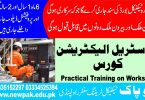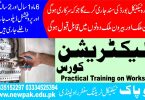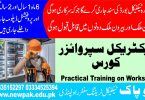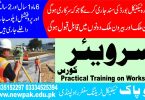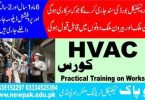
Refrigeration and Air Conditioning Course In Rawalpindi Islamabad
The Refrigeration and Air Conditioning Course offers practical, in-demand training for individuals pursuing a career in climate control systems. This hands-on program teaches the installation, maintenance, and troubleshooting of HVAC systems, combining conventional techniques with modern digital technologies. Designed as a complete refrigeration technician training and AC and refrigeration course, it prepares students for real-world roles in both residential and industrial settings. With a focus on eco-friendly practices and modern diagnostics, this is one of the most comprehensive training courses available for those seeking a career in climate control systems.
Course Overview
This refrigeration and air conditioner technician course offers comprehensive knowledge and hands-on experience in the design, installation, maintenance, and troubleshooting of refrigeration and air conditioning systems. The course caters to Pakistan’s climate and industry needs, integrating both conventional and emerging HVAC technologies. Students will engage in practical sessions, field visits, and project-based learning aligned with global standards and local applications.
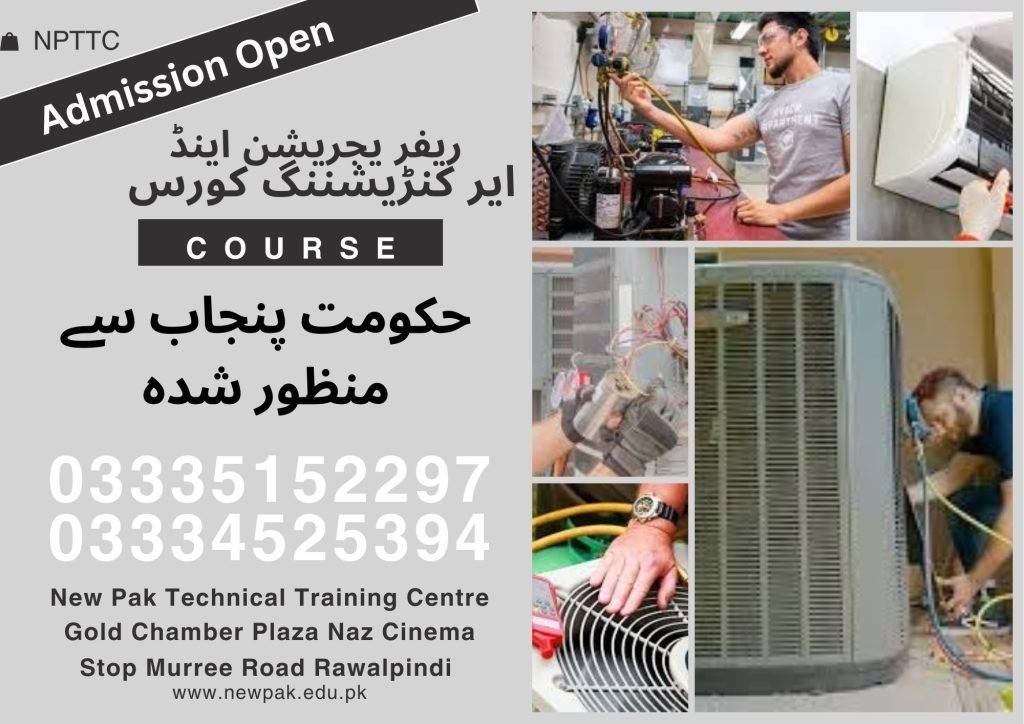
Course Duration
06 | Months
- Introduction to Refrigeration & AC
- Exploration of System Types
- Drilling into Components & Operation
- Production and Installation Techniques
- Refrigerant Handling and Gas Processing
- Health, Safety & Environment (HSE)
01 | Year
- Introduction to Refrigeration & AC
- Exploration of System Types
- Drilling into Components & Operation
- Production and Installation Techniques
- Refrigerant Handling and Gas Processing
- Health, Safety & Environment (HSE)
- Petrochemicals and By-Products
- Advanced Maintenance Techniques
- Commercial & Industrial Systems
- Digital & Smart HVAC Technologies
- Case Studies and Field Practices
- Career Preparation and Industry Roles
Course Outline (6 Months)
Introduction to Refrigeration and Air Conditioning
Month 1
- Historical development and global impact of HVAC
- Overview of system types: window, split, central, and commercial
- Components overview: compressors, condensers, evaporators, expansion valves
- Applications in food storage, medical services, transport, and buildings
Basics of Thermodynamics in Refrigeration
Month 2
- Basic heat transfer principles and thermodynamics
- Vapor compression cycle: components, working fluids, COP
- Introduction to absorption refrigeration and key differences
Refrigerants and Their Environmental Impact Overview
Month 3
- Types: CFCs, HCFCs, HFCs, hydrocarbons, ammonia, CO₂
- Properties and safety standards
- Environmental impact: ozone depletion and GWP
- Introduction to eco-friendly refrigerants (R-290, R-600a, R-744)
System Design and Electrical Component Integration
Month 4
- Load calculation and basic sizing
- Introduction to system layouts: split, packaged, ducted
- Piping design basics and electrical control integration
- Ductwork overview and airflow concepts
Refrigeration & Installation Technician Training
Month 5
- Standard installation practices
- Equipment mounting and component connection
- Use of CAD tools in layout design
- Commissioning procedures
Maintenance, Safety and Troubleshooting Basics
Month 6
- Preventive maintenance: inspection, cleaning, lubrication
- Common issues: refrigerant leaks, control failures
- Use of gauges, meters, and leak detectors
- Local safety codes and refrigerant handling regulations
Course Outline (1-Year)
Months 1–6: Basic Refrigeration and Air Conditioning Course In Rawalpindi Islamabad
(Same course content as the 6-month program but with more detail, role-plays, software demos, and hands-on practice.)
Advanced Thermodynamics and Psychrometrics
Month 7
- Deep dive into entropy, enthalpy, and real-world thermodynamic analysis
- Practical interpretation of psychrometric charts
- Optimization techniques for energy-efficient systems
Commercial & Industrial Refrigeration
Month 8
- Commercial refrigeration types: cold rooms, transport systems
- Design for commercial installations
- Application in supermarkets, hospitals, and industrial plants
Advanced Maintenance and Diagnostic
Month 9
- Advanced fault diagnosis: sensors, controllers, communication failures
- Troubleshooting flowcharts and guided diagnostics
- High-level refrigerant recovery and recharging
Smart HVAC and Digital Technologies
Month 10
- Smart HVAC systems: IoT-enabled monitoring, predictive maintenance
- Remote diagnostics and cloud-based control systems
- Introduction to BMS (Building Management Systems)
Green Tech & Alternative Systems
Month 11
- Solar-powered air conditioning: PV and thermal integration
- Inverter technology and Variable Speed Drives (VSDs)
- Geothermal and adsorption systems
- Low-GWP refrigerants and compliance with Pakistan’s climate
Career Preparation and Capstone Project
Month 12
- Capstone project: real-world system design (residential/commercial/transport)
- Site visits and practical evaluations
- Communication, documentation, and client interaction
- Career planning and prep for international certifications
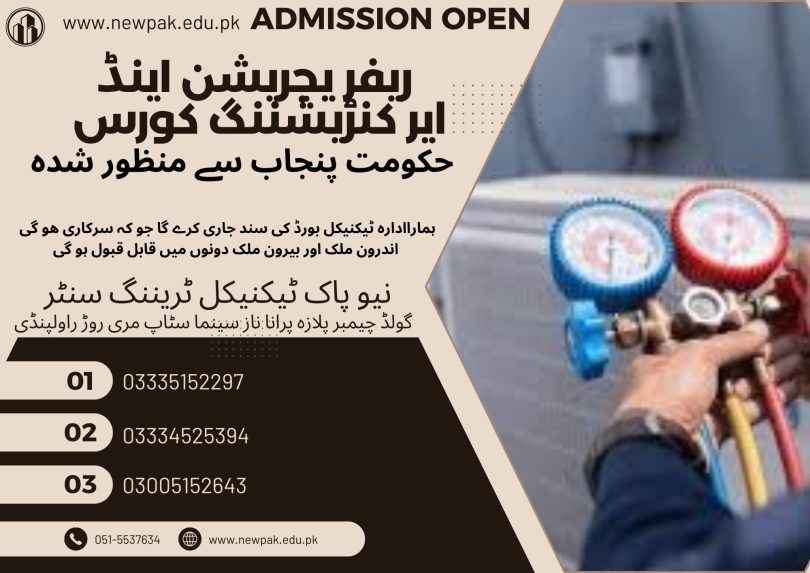
Career Opportunities
- Refrigeration & Air Conditioning Technician
- HVAC Installer / Service Engineer
- Commercial Cold Room Specialist
- Solar Cooling Technician
- Maintenance Supervisor
- Transport Refrigeration Expert
- Project Engineer
- Technical Consultant
- HVAC Contractor or Entrepreneur
- Facilities Manager
Conclusion
The Refrigeration and Air Conditioning Course In Rawalpindi Islamabad offers essential technician training through a blend of theory and hands-on practice. Ideal for those looking to enter the field, this well-rounded program equips students with the skills needed for today’s industry. It’s a smart choice among refrigeration training courses for anyone seeking a reliable, career-focused path.

